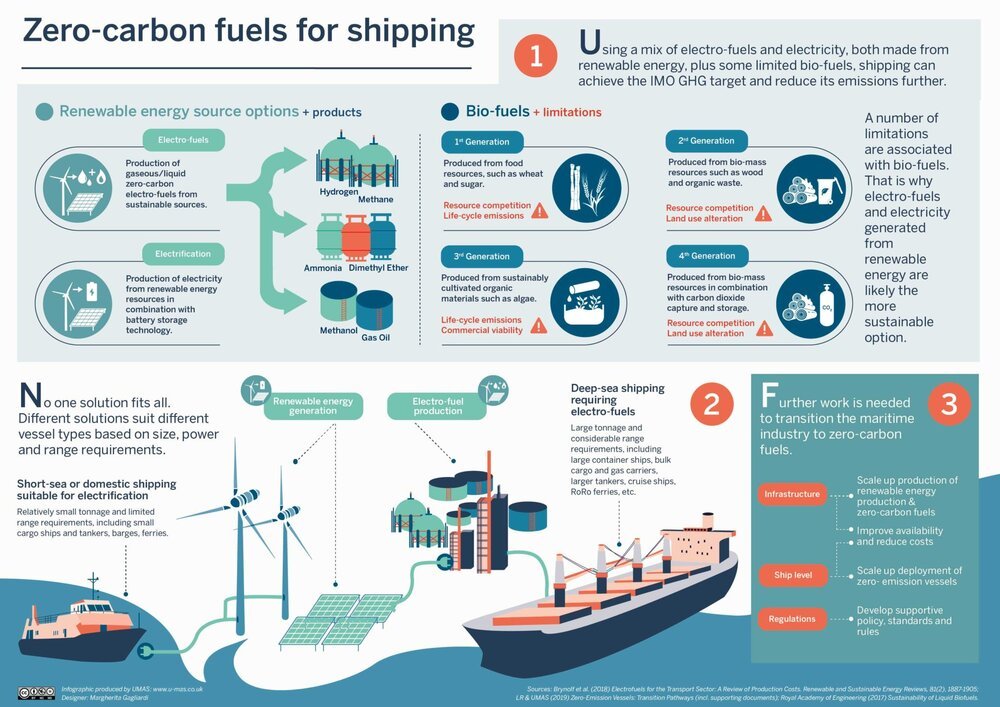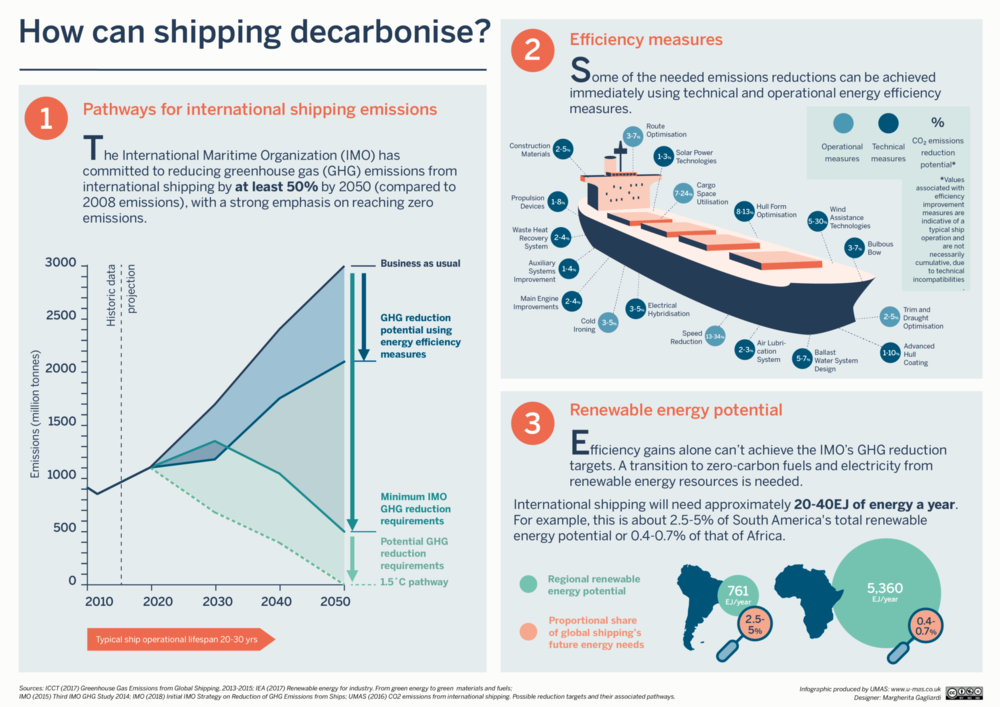The European Union Targets. Impact on Shipping (Part 3)
In the previous section of this three-part story, we have been looking at the European Union’s target to reduce CO2 emission by 55% in 2030. In this last part of the series, we will look at the final implications this has on Shipping.
One might argue that shipping will never get away from oil as a primary source of energy. Though, we might not make this decision out of our belief in the environment. Let us have a look back in history and see what we can learn from it. In 1800, almost all transatlantic shipping took place with vessels that took their power from sails. It was a cost-efficient way of passing the ocean by using wind power, though the hidden cost was in the slow speed of the transfer. In 1800, speed was not a requirement that was necessarily as high on the agenda as in today's society. In late 1800, beginning of 1900, steam engines started to become mainstream in the transport business, and many vessels started to cross the oceans using this technology, fueled by fossil fuels or wood. The increase in speed was linked to savings in work time, efficiency in transportation, and an increase in tonnage that could be shipped in a certain amount of time without increasing the ships' physical size. The increase in efficiency quickly covered the cost of fossil fuel. So, the industry had gone through a change, though, at that time, it was sailing ships versus steamships.
In late 1800,
… beginning of 1900, steam engines started to become mainstream in the transport business, and many vessels started to cross the oceans using this technology, fueled by fossil fuels or wood.Make it stand out
Source: Handbucher fur die deutschen Handelsmarine, (1878-1914)
In 2020, we still used the same technology, although the ships are not steam-powered anymore, though use some sort of generator fueled by fossil fuel. So, the primary source of power stays the same. The difference is that operating with fossil fuel is determined to become more costly, may it be because of CO2 taxes, fuel shortages or other reasons linked to environmental matters. Why have we waited so long to make any change? Because there was no need due to the low price of fossil fuel. And, no technology could be used on a large scale and be sufficient for cross Atlantic cruising.
Today this situation is different. Global Sustainable Development Scenarios describe a picture where shipping will have halved its oil consumption by 2040 and almost diminished such by 2070. What could thrive this?
Around 1900
...a barrel of crude oil costed less than a dollar. In 2012 the same amount of oil reached its highest price ever of almost 112 USD. Although the oil price has dropped to half in between and slowly gained traction upwards again, the levels of the early 1900 will never be reached again.
Hannah Ritchie and Max Roser (2017) - "Fossil Fuels". Published online at OurWorldInData.org. Retrieved from: 'https://ourworldindata.org/fossil-fuels' [Online Resource]
Some might argue that there is enough oil on this planet. Sure, that might be the case, or not. The fact is that the per capita oil consumption is not rising as fast anymore in developed economies and has been falling since the 70s throughout the world.
Comparing…
… the early economic boom in the 1970s in the US with the current boom in China shows that the energy sources have significantly changed.
Hannah Ritchie and Max Roser (2017)
This high-level understanding of oil price dynamics will already make the shipping industry understand that alternatives need to be sourced to stay competitive in the market.
What can we expect to happen in terms of price and demand? Carbon Taxes will increase costs if no alternative sources are used. For the European Union to reduce emission by 55% by 2030, a 160-ton reduction must happen yearly. Since the new technologies had not been available in 1990, we will need to handle the reduction between 2020 and 2030. That means a 4% to 6% reduction year on year. How can a government force businesses to make such a drastic change? Maybe through Carbon Taxes? Maybe by incentivizing companies who change to alternative energies. Perhaps into electricity in the short term and Hydrogen in the long term?
Whatever the answer. One thing is clear. You don’t need to be an environmental business leader in fostering this change. It is ok to think with a business mind and still be convinced that the change makes economic sense.











